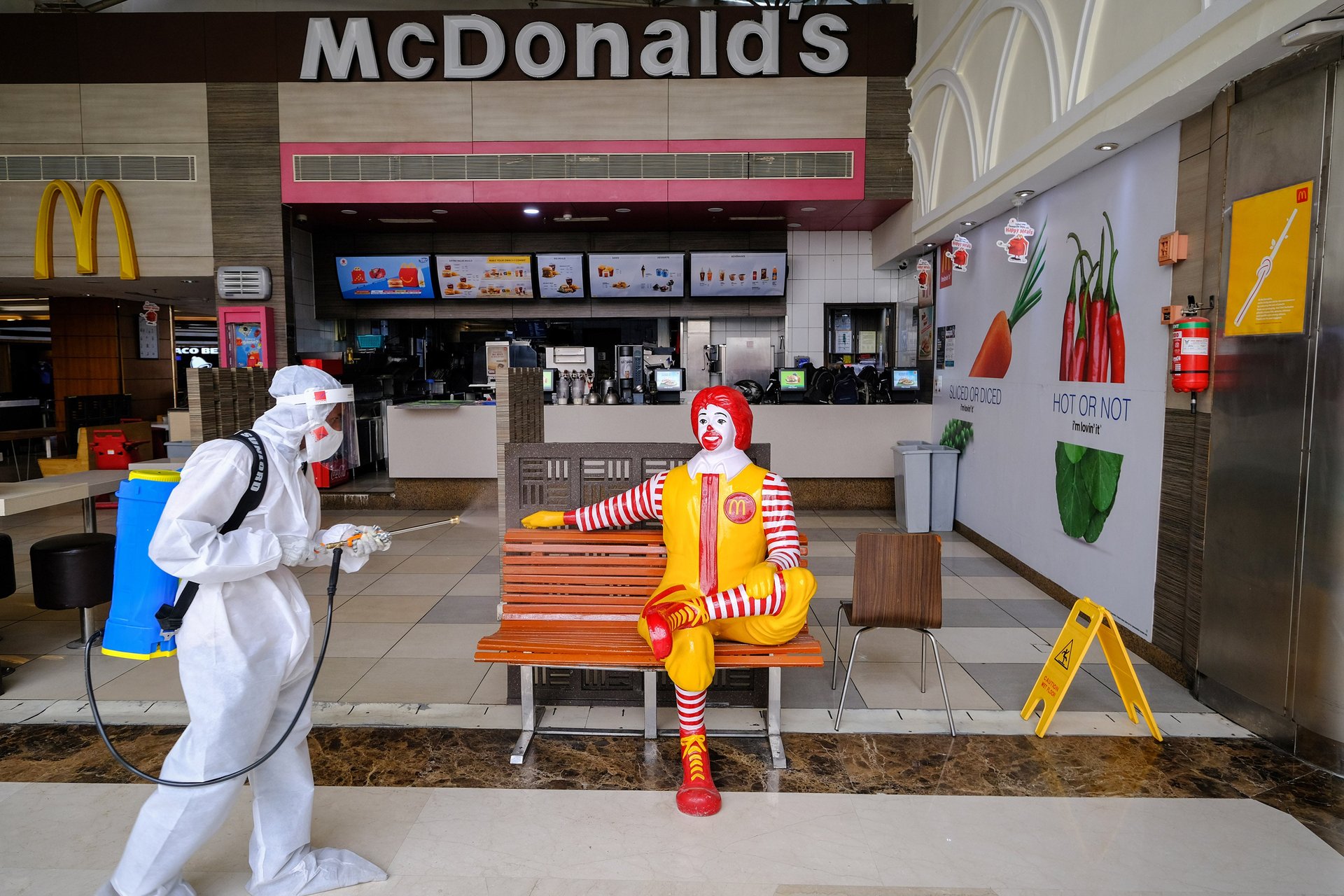McDonald’s says price hikes aren't that bad. Executives should keep 'their mouths shut,' analyst says
The fast food giant's pushback to reports of huge price hikes "comes across as a bit tone deaf"

McDonald’s and Starbucks have their hands full — but for all the wrong reasons.
Suggested Reading
Two of the world’s biggest restaurant chains are dealing with some serious PR woes. McDonald’s is pushing back on reports that the chain has jacked up its menu prices by 100%. Meanwhile, Starbucks is dealing with a host of issues, including boycotts, barista unionizations, and even a direct callout from its former CEO.
Related Content
With inflation still elevated, the two restaurant retailers are also dealing with a slowdown in consumer demand, according to quarterly earnings reports. And in recent weeks, the chains have tried to put a better shine on things.
In open letter on Wednesday, Joe Erlinger, McDonald’s U.S. president, said that a string of viral social media posts and reports that McDonald’s has raised prices beyond the rate of inflation are “inaccurate.” The chain has not been immune to inflationary pressures, he said, adding that the company has had to deal with a global pandemic, supply chain snarls, and wage increases.
“Americans across the country are making tough calls about where to spend their hard-earned money,” Erlinger said.
“For a brand that proudly serves nearly 90% of the U.S. population every year, we feel a responsibility to make sure the real facts are available,” Erlinger said, adding that the chain has increased prices on average by 40%.
Jerry Sheldon, vice president of technology at the market research firm IHL Group, said the PR approach by McDonald’s was unusual.
“It’s rare to see a retailer push back,” Sheldon said.
And it risks being misinterpreted, he said.
“For Joe Erlinger to push back on consumers comes across as a bit tone deaf,” Sheldon said, adding that Erlinger’s attempt to blame franchisees for price hikes “seems to exacerbate the problem.” Roughly 95% of U.S. based McDonald’s are run by franchisees, who set their own prices.
Pointing fingers won’t help McDonald’s cultivate sympathy or customer loyalty, Sheldon said, and the company’s executives “would be better served keeping their mouths shut instead of criticizing the consumer for voicing their opinion.”